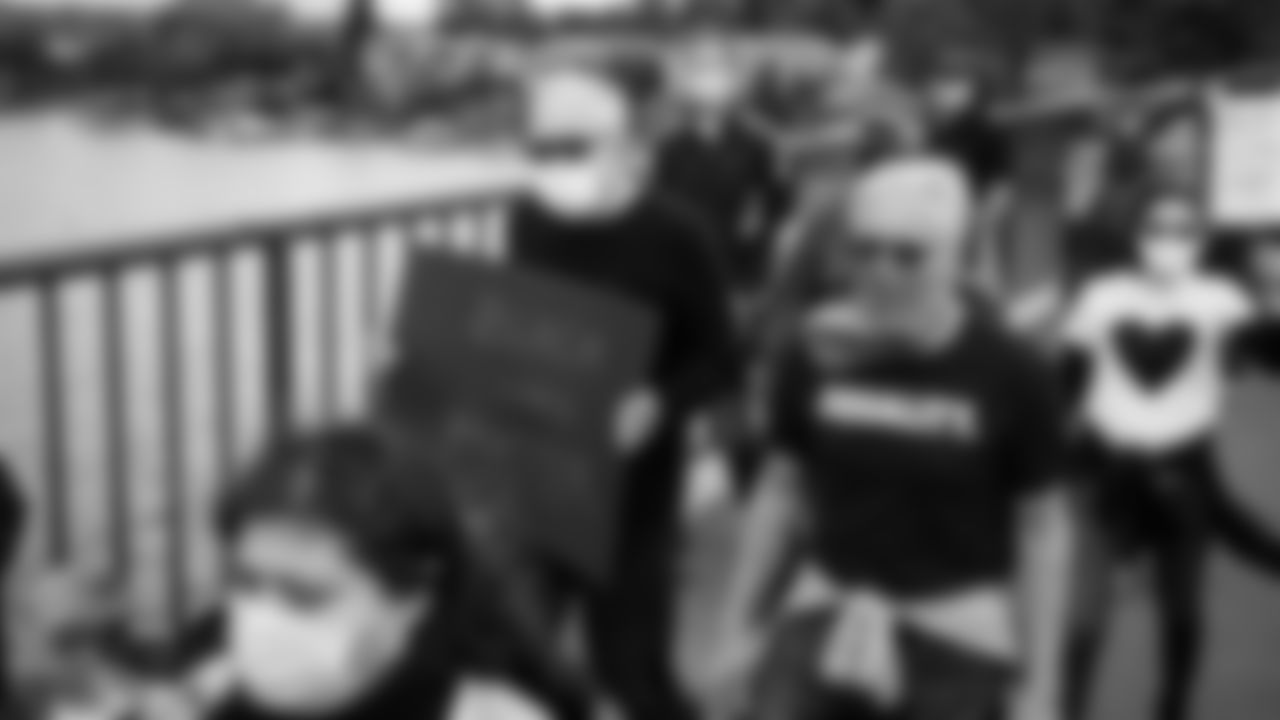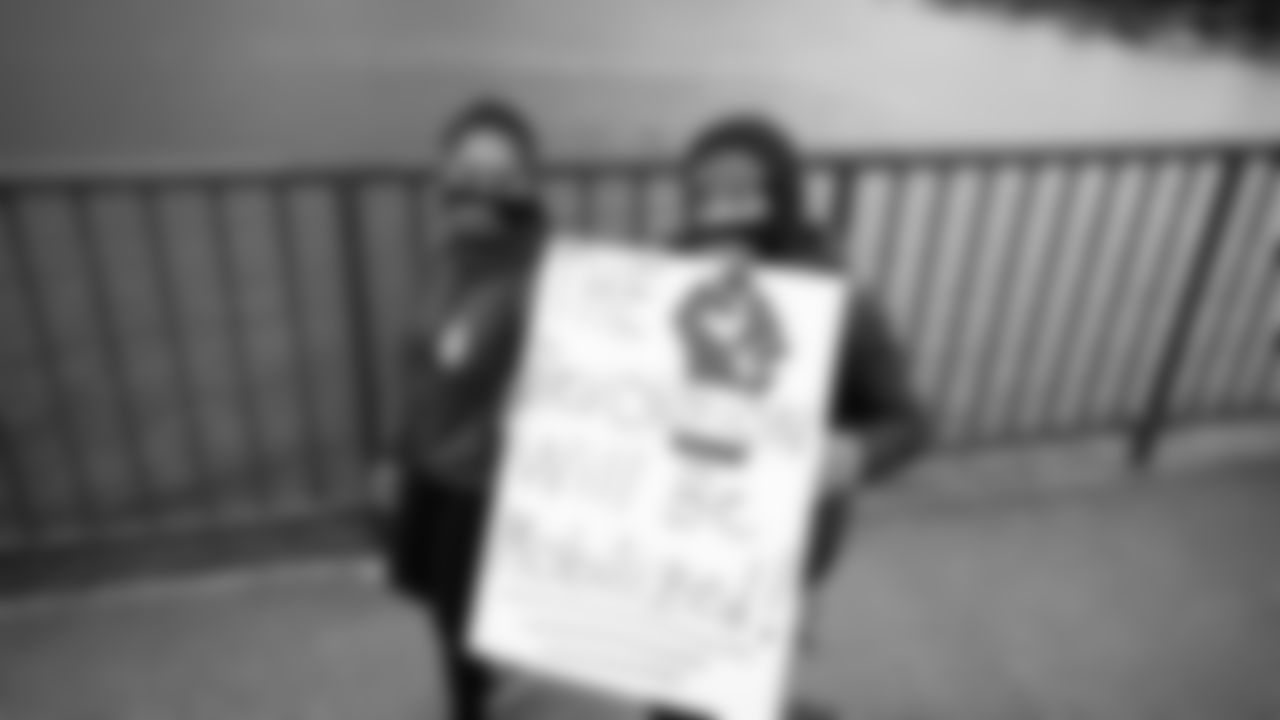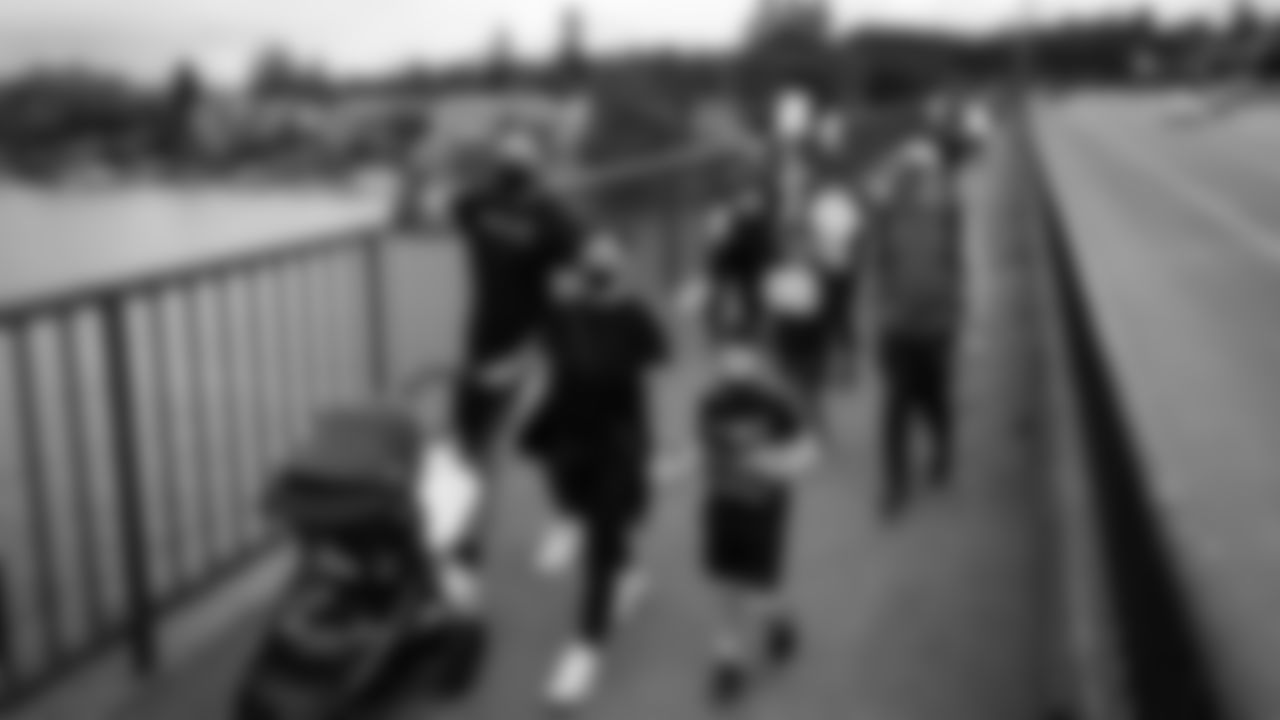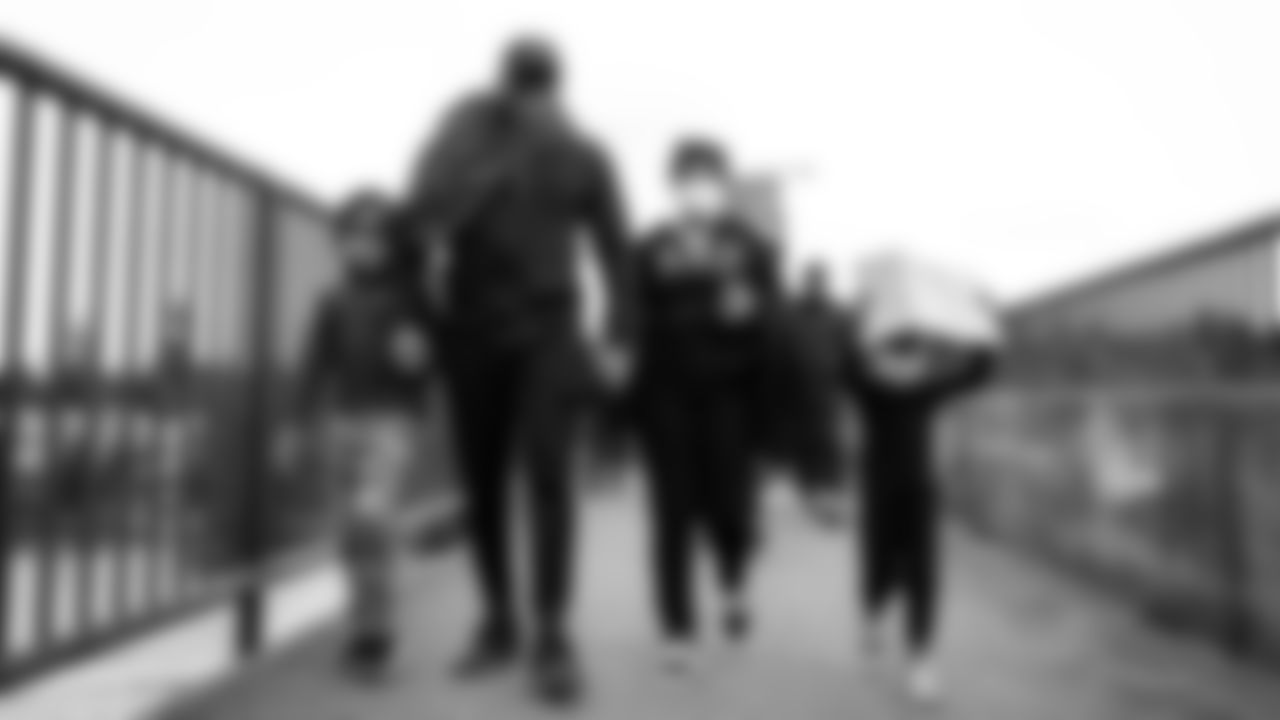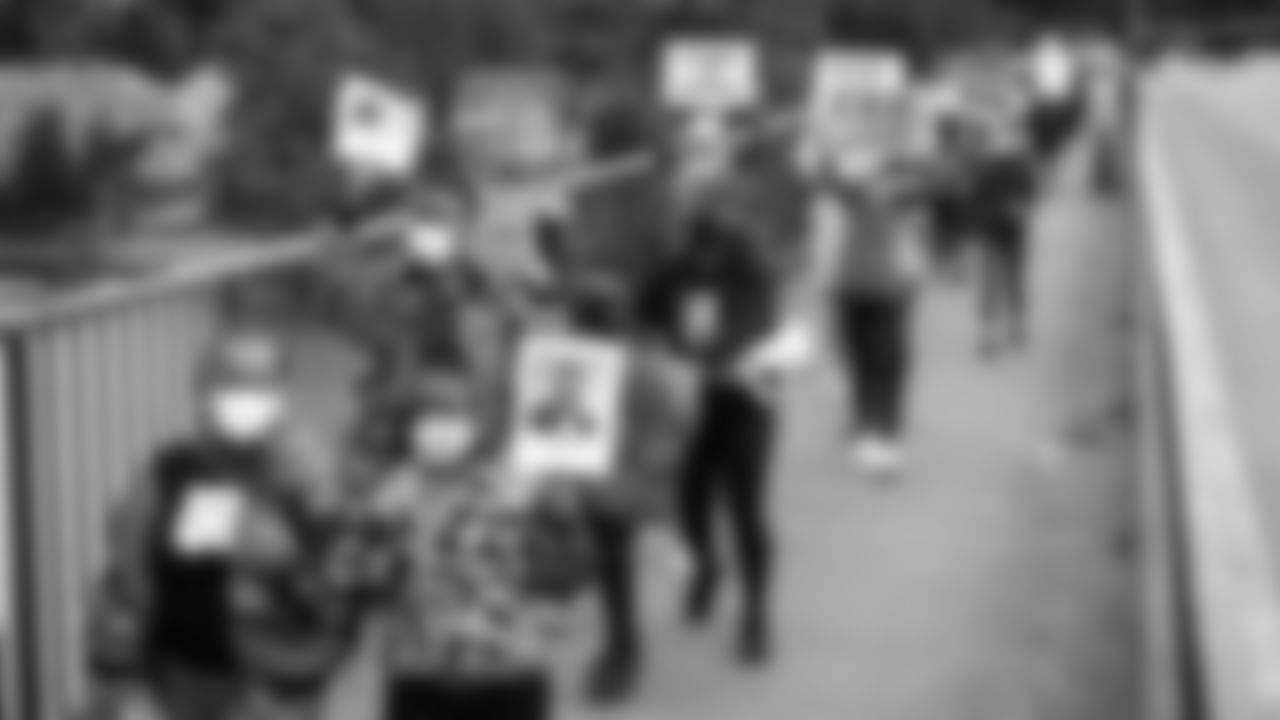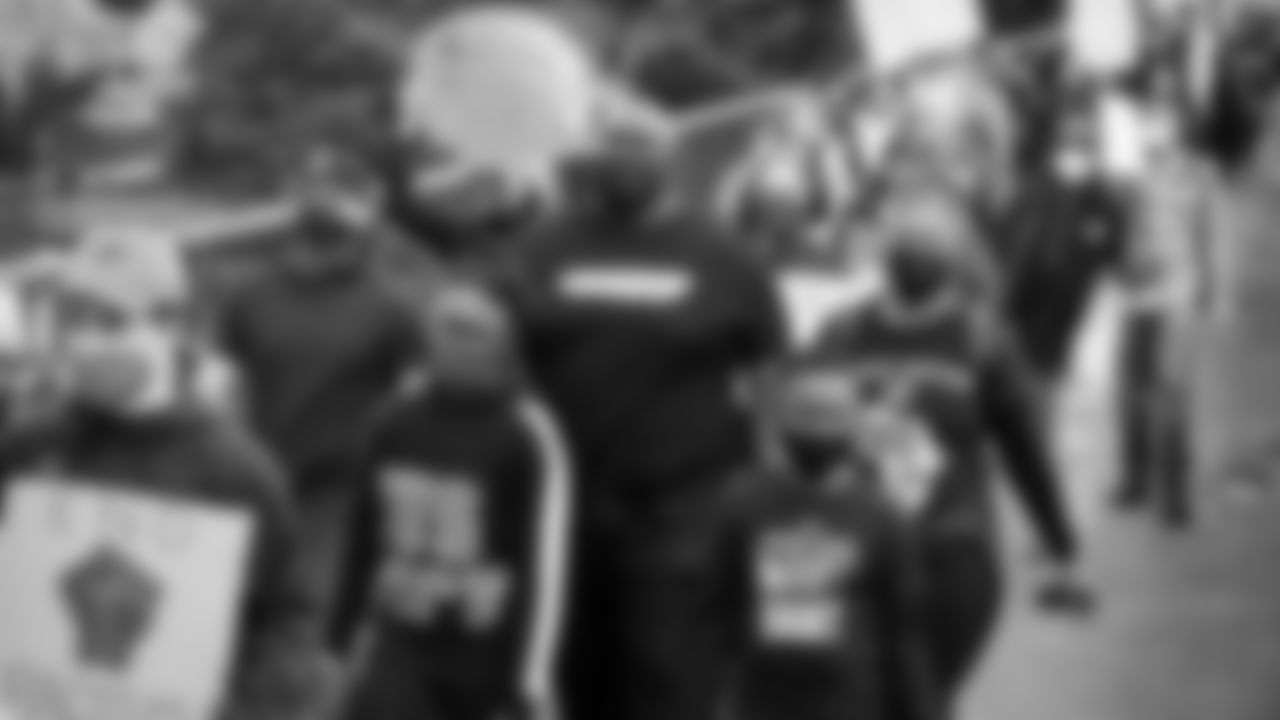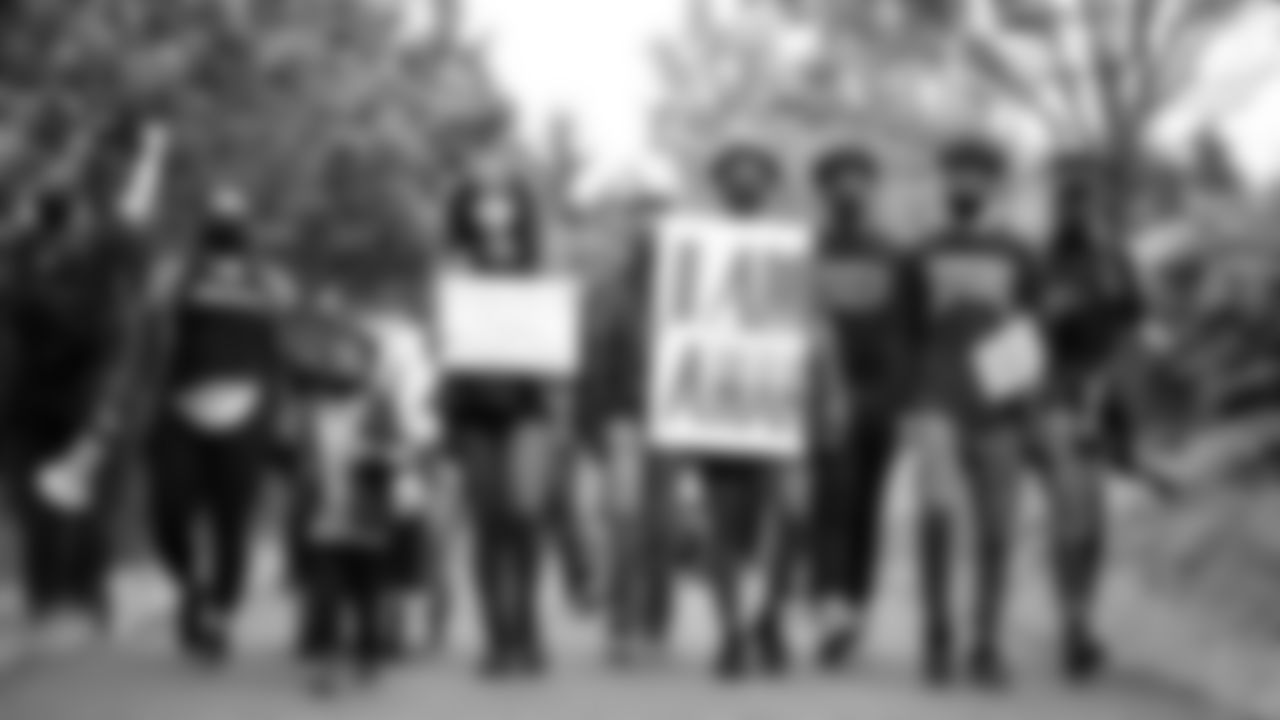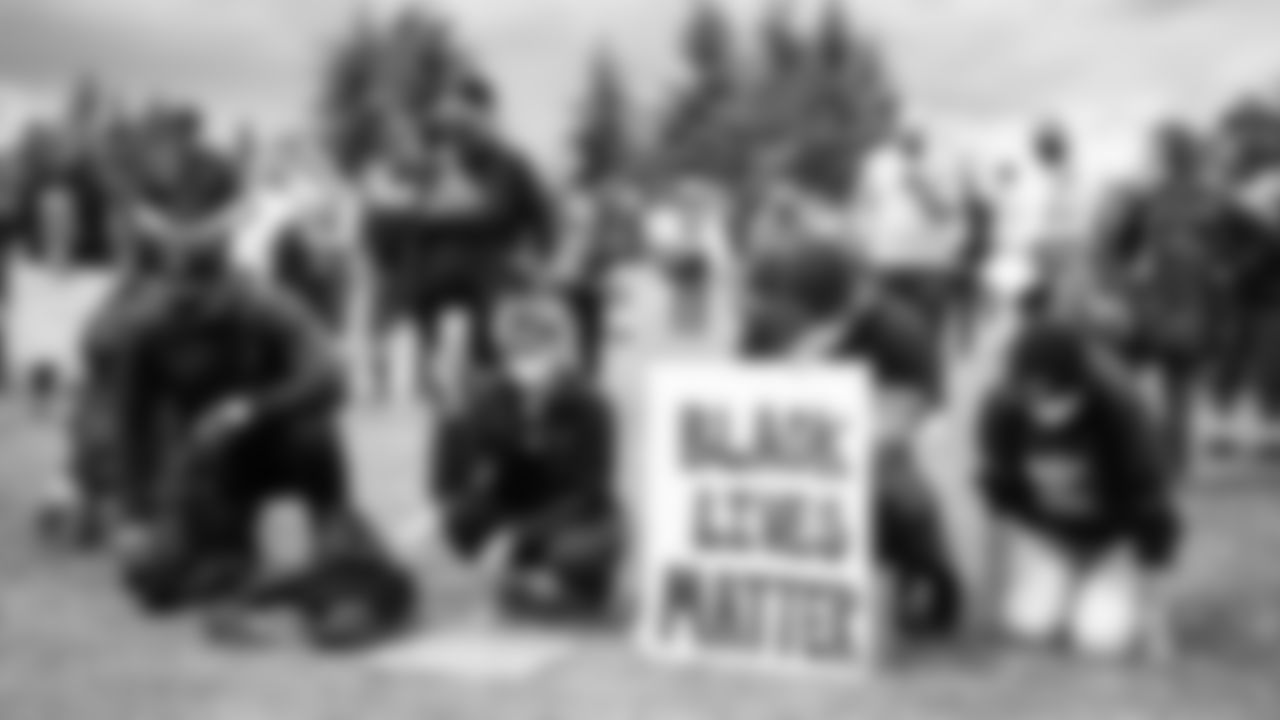Growing up as a Black child in Mississippi, DK Metcalf knew well the story Emmett Till, having been told by his father about Till, and later learning more about him in school during Black History Month.
A 14-year-old Till was brutally murdered in Mississippi for allegedly flirting with a white woman in 1955. Sixty-five years later, while some progress has been made, the fight against systemic racism remains a significant issue in this country.
That's why when Metcalf takes the field for Seattle's season opener, he will have a decal reading "Emmett Till" on the back of his helmet, and why other players and coaches will also honor victims of systemic racism and police brutality and support social justice efforts with decals on helmets and patches on hats. In addition to honoring victims of racism, players and coaches will also display phrases like "Black Lives Matter," "End Racism," "It takes All of Us" and "Stop Hate."
The seasons-long, league-wide effort aims to highlight actions being taken by players, engage fans to act and give players and coaches a platform on gameday to share their voices and inspire change.
"I chose Emmett Till, mainly because he was from Mississippi, I'm from Mississippi, and systematic racism has been going on for quite some time," Metcalf said. "We're still talking about it today after 65 years, so it's still a big problem that we've got to fix."
As linebacker K.J. Wright, who is also from Mississippi, put it, "We've made progress here in this country, but we've still got a long way to go."
In addition to players wearing helmet decals in-game, they will also wear shirts that read "We Want Justice" during pregame warmups, a call to action organized by Wright.
"I'm really passionate about this, I'm really passionate about my people," Wright said. "To have this message out there, to have fans see it every day, to have my teammates embrace it, it's a powerful message. It's simple, it's clear, we just want justice, plain and simple.
"This has been going on for a long time. The system was created to oppress Black people, and it's still going on today. That's why I want to meet with governors, meet with the state legislators to get these laws changed. There's stuff in there that's got to be fixed. In order to bring about change, you've got to get policies changed. That's one of my main goals, to get stuff fixed so it's clear cut in the law book, this is not acceptable."
Like so many of his teammates, Wright sees it as his responsibility as a well-known athlete to use his platform to try to make a difference.
"As athletes and as Seahawks, we're definitely looked up to, we definitely have a voice, we definitely have influence, and I think that's going to be very important to see that as athletes we do stand for something," he said. "It's bigger than football, so we've got to keep this going, let everyone see it, whether it sparks the conversation between a Black person and a white person, or whether a mayor sees this or a governor sees it to just get their minds right and see what we're asking for and what we demand… We all know what's right, and we all know what's wrong. That's what we're doing, we're fighting for what's right, we're fighting injustice to make this country better."
Cornerback Shaquill Griffin's helmet decal will read "Black Lives Matter," and like Wright, he sees in his team an ability to make a difference with the significant platform he and his teammates have as professional athletes, even though what they're fighting for is much more significant than the sport they play.
"We're fighting for something way bigger than us just being athletes," Griffin said. "We're asking for justice for something that's been happening for so many years. You tend to get fed up. You've been going through it for so long. Being able to wear that (We Want Justice) shirt, we've got to continue to use our platform and spread awareness that this has been happening for too long, and we're tired of it. Someone has to take a stand.… We won't be silenced. That's the main thing. We're going to use our voice, we're going to use our platform, we're going to spread awareness and we're going to make a difference. We'll continue to fight for justice until we get it."
But while Black players have been the most vocal and visible in this fight, their white teammates recognize, as Seahawks coach Pete Carroll passionately discussed last weekend, this isn't a problem for Black people to solve. As Carroll said in a nearly 15-minute long monologue last week, “Black people can’t scream anymore, they can't march anymore, they can't bear their souls anymore," and white players on Seattle's roster are proudly joining this fight, including center Ethan Pocic, who will have George Floyd's name on his helmet, and linebacker Ben Burr-Kirven, who will honor Breonna Taylor on his helmet.
"When somebody gets shot asleep in their house on a no-knock warrant, something has to change," Burr-Kirven said. "The way the news cycle works, it's easy for things to fall out of the news and for people to forget. And you can't forget what happened, you have to make something change, so the best way to keep this in the news and keep people paying attention is to put in a place where millions of people are going to see it every weekend when we play."
Prior to Carroll delivering his public challenge to fellow coaches and to white people in general to use their voices to combat racism, the team held a lengthy meeting Saturday in which numerous players shared their stories, told their teammates about their fears and offered each other support.

"The team meeting we had, hearing teammates share their personal stories was one of the most powerful moments I've ever had," Burr-Kirven said. "You see the things in the news, but to hear the guys that you strap up and go and play with and are around 24/7, to hear their stories, what they've gone through, even being NFL players and being celebrities, it's just shocking."
Safety Jamal Adams' phrase of choice he'll be representing this year, though not on his helmet as it wasn't one of the approved choices, is "How many more?" That was part of the message Adams shared in last weekend’s team meeting after Carroll tabbed him as the first player to speak to the team.
"The reason I chose 'How many more,' I chose it because, we don't know," he said. "We're afraid, we don't understand what's going to happen next, and we're just praying each and every day that it's not one of us."
In addition to the social justice phrases, the Seahawks will honor these names this season, though not all will necessarily appear on player helmets:
Emmett Till
Fred Hampton
Marsha P. Johnson
Trayvon Martin
Walter Scott
Sandra Bland
Renee Davis
Mi'Chance Dunlap-Gittens
Tommy Le
Charleena Lyles
Giovonn Joseph-McDade
Trey Pringle
Antwon Rose II
Charles Roundtree
Iosia Faletogo
Jesse Sarey
Darius Tarver
Ahmaud Arbery
Manuel Ellis
Breonna Taylor
George Floyd
Jacob Blake
Another cause Seahawks players are getting behind is encouraging everyone to exercise their right to vote in November. After that aforementioned team meeting last weekend, the team decided to cancel that day's practice and get every player on the roster registered to vote who wasn't already registered. Seahawks.com also has a page dedicated to voting resources, and as it was for the August primaries, CenturyLink Field will serve as a voting center on November 3.
Safety Quandre Diggs registered to vote earlier this year for the first time, noting he has gained a better appreciation for what the right to vote means as he has matured.
"Four years ago I didn't take it as serious as I should have," he said. "… I think a lot of people have had that idea of, 'My vote is only one vote, it doesn't mean anything.' But think of the millions of other people who are thinking the same thing, and how those votes can add up and how it can have an effect on the election.
"People before us fought hard, fought long to get voting for everybody. Not just Black individuals, but women also. So if you think voting isn't important, think of the people before you who took time and protested and fought to get us to have this basic right to go out and vote."
Metcalf was one of the players who registered to vote last weekend, despite his mother trying to make him understand the significance of doing so sooner.
"When I was in college, my mom always stressed about voting, and I didn't take her seriously because I always thought, 'I'm just one person, I can't change if a person wins or loses,'" he said. "But it's not just my one vote that counts, but me putting it out there, telling other people that your vote counts. If we keep building blocks and building blocks, it's going to make a big difference. Rome wasn't built in a day. One person's vote won't change anything, but if you get a whole population—like our whole football team is going to vote—it's going to make a big difference."
Linebacker Shaquem Griffin was also among those who previously didn't think his vote made a difference, but now says, "Voting does matter. Me thinking that my vote doesn't count is just hurting myself, hurting my community and hurting my country. If you want to have change, you've got to get out there and make it."
Tiffany Chancellor and Nathalie Wright, wives of Kam Chancellor and K.J. Wright, organized a march across the I-90 Bridge in support of racial equality.



